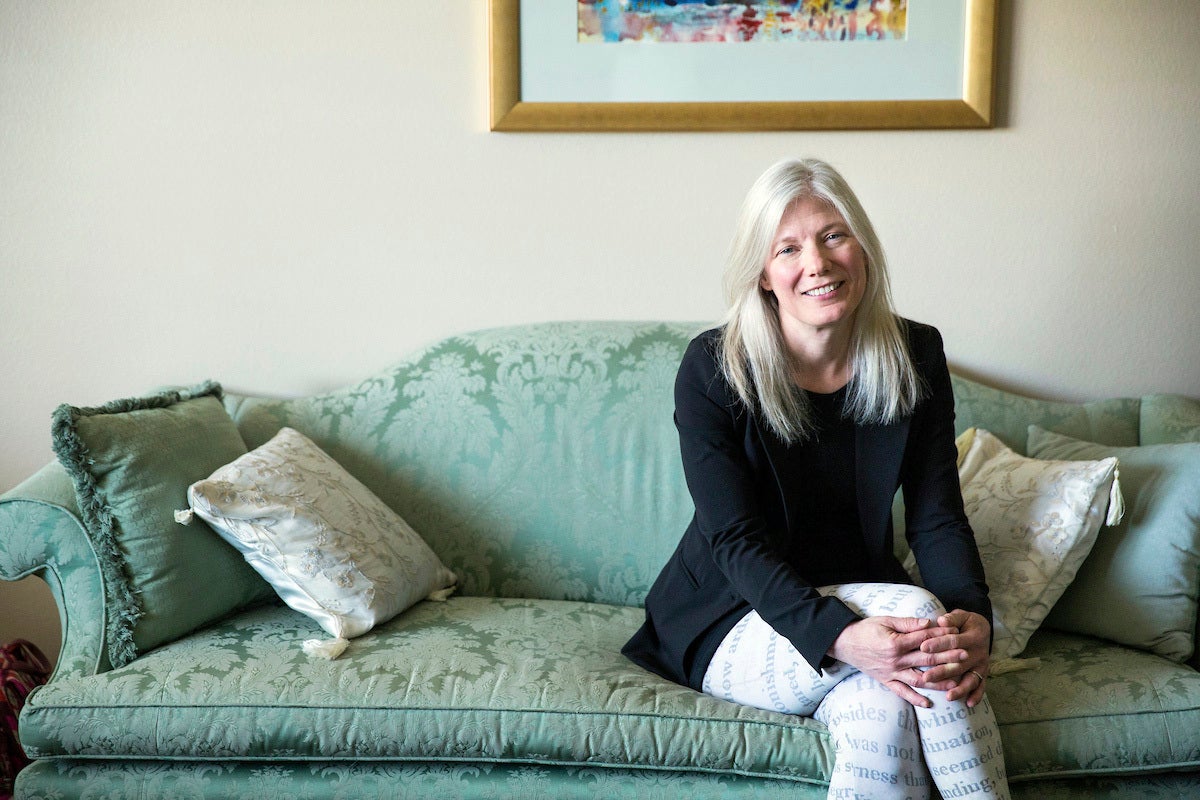Jane Austen family link to abolition movement comes to light
While Jane Austen admirers savor the wit and romance of “Pride and Prejudice” and her other enduring novels, scholars have long delved into Austen’s life and times

While Jane Austen admirers savor the wit and romance of “Pride and Prejudice” and her other enduring novels, scholars ferret out details of Austen’s life and times, including a family link to slavery that surfaced 50 years ago.
The effort to place the writer in the social and political context of her day has yielded a new and contrasting discovery: A favorite brother was part of the 19th-century abolition movement.
Devoney Looser, an Arizona State University professor and author of “The Making of Jane Austen,” unearthed the Rev. Henry Thomas Austen's attendance at the 1840 World Anti-Slavery Convention in London which drew some 500 delegates.
“I was stunned to find that fact,” Looser said in an interview. She first detailed her research in an essay for The Times Literary Supplement.
“The family’s commitments and actions changed profoundly, from known complicity in colonial slavery to previously unnoticed anti-slavery activism,” Looser wrote. “Henry became a next-generation Austen publicly supporting a political commitment to abolish slavery across the globe.”
Looser’s essay also addresses patriarch George Austen’s previously revealed ties to another family's West Indian sugar plantation, calling them “very real” but “both under-described and overstated.”
The latest research was welcomed by Patricia A. Matthew an associate professor of English at Montclair State University who focuses on literature of the period that encompasses Austen. Her courses include British abolitionist literature.
“I’m always excited about new information about the authors I teach,” Matthew said. While it doesn't change her view of Austen's work — “I don’t believe that I’m reading someone who’s actively engaged in debates about the slave trade” — it could resound with Austen's most devoted admirers, sometimes called ”Janeites."
“I think they are having a kind of reckoning in how they think about not just Austen, but the Regency period,” said Matthew, referring to the British era of the early 1800s. “It raises all manner of interesting questions about how they understand this author.”
The slim collection of novels that Jane Austen wrote before her death at 41 in July 1817 focus on relationships, not current events. There is a glancing reference to slavery in “Mansfield Park,” and a character in “Emma” defends an off-stage figure as “rather a friend to the abolition.”
As for Austen’s own beliefs, Looser said, “we know from her letters that she refers to having loved the writings of a prominent white abolitionist, Thomas Clarkson. So we know that she read and cared about issues of race and racial injustice.”
A diary entry from another Austen brother, Francis, called it regrettable that any trace of slavery “should be found to exist in countries dependent on England, or colonised by her subjects.” His opinion was not made public until the early 1900s.
Britain outlawed the slave trade in 1807 and made slavery illegal in 1833 with the exception of some territories. Subsequent legislation outlawed it entirely.
How Looser discovered Henry’s abolition activism is a scholarly detective story. In the course of her ongoing research, she found that he had billed himself as the Rev. H.T. Austen for his writing and public work. That pulled her down new paths, including his conference participation.
It was not to be found elsewhere, even in the Austen scholars' bible, “A Chronology of Jane Austen and her Family: 1600 to 2000” by Deidre Le Faye, which Looser describes as nearly 800 pages filled with “thousands and thousands of facts” about the Austens,
Looser's find coincides with a racial reappraisal that is taking place widely, including in the United Kingdom.
In April, a British media squall greeted plans to update the museum at Jane Austen's House in the town of Chawton, where she lived and wrote for about eight years and which is a magnet for Austen fans. A revamped display that include research on her connections to slavery was denounced as a “revisionist attack" by one newspaper.
“We would like to offer reassurance that we will not, and have never had any intention to, interrogate Jane Austen, her characters or her readers for drinking tea,” said a tart statement issued by Jane Austen's House — tea being a vital part of the British colonial empire.
For readers who might balk at bringing what might seem like modern issues and perspectives into consideration of Austen and her work, Looser has a ready answer.
“Issues of race, racism and racial justice are central to Jane Austen’s day," she said. "So we’re not bringing questions and concerns that weren’t there in her time. They were absolutely there.”
Bookmark popover
Removed from bookmarks